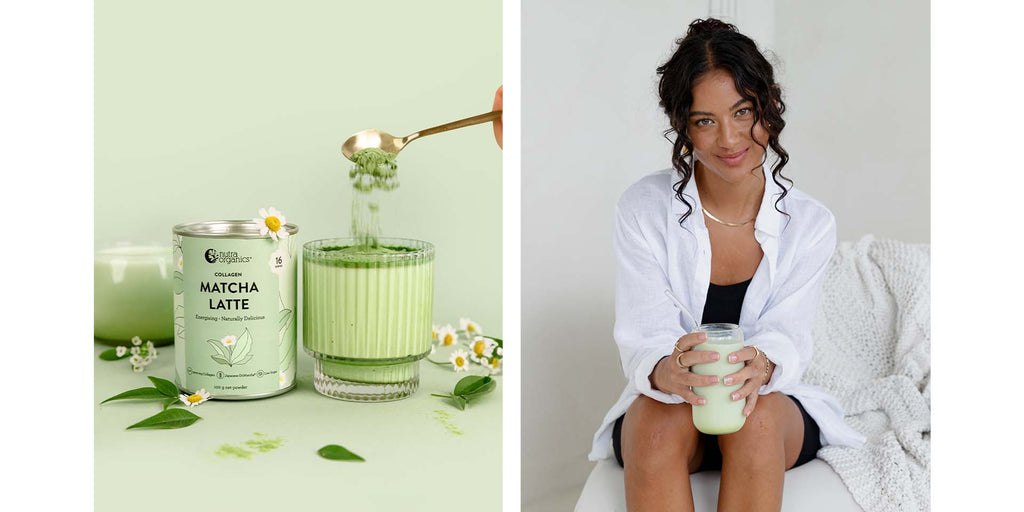Matcha has seen a huge wave of popularity lately and thousands of women are swapping their morning coffee for this delicious, potently nutritious, antioxidant rich beverage. So what’s better? Matcha or Coffee? We’ve put together an overview of why this swap is a good idea.
What is Matcha?
Matcha is a delicious tasting, powerfully nutritious green tea that originated in Japan and has been consumed for hundreds of years. It comes from the same plant as normal green tea (Camellia Sinensis) but is grown and harvested a bit differently. Regular green tea is cultivated and harvested in the sun, whereas Matcha green tea is moved into the shade for a period of time prior to harvesting (usually about three weeks). The loss of sunlight means that the plant responds by upregulating the amount of chlorophyll in an attempt to absorb more sunlight. This results in a higher antioxidant content, brighter colour and more balanced flavour. Matcha naturally contains some caffeine, but it comes as part of a comprehensive and complimentary nutritional profile that both energises and soothes.
Matcha Latte vs Coffee
Matcha and coffee both make great energy boosting, wake-me-up drinks and we certainly will never say anything negative about coffee (we love you), but matcha does have more benefits and a lesser chance of causing any side effects.
Slower, more sustained energy release
The way coffee (particularly black coffees) release caffeine can cause a quick spike in energy, adrenaline, and an increased heart rate. This can then result in an equal but opposite energy crash not long after, making you reach for another cup. Matcha, on the other hand, releases its caffeine more slowly, in a more sustained way.
‘Tired But Wired’ vs ‘Calm But Alert’
The way caffeine boosts energy is by rapidly crossing the brain barrier and blocking adenosine receptors, which blocks the feelings of sleepiness, and raises your body temperature, heart rate and breathing rate. This is a bit like revving the engine when you’re getting low on fuel. Matcha contains some caffeine that is also able to block the adenosine receptors, but the effect is more gradual and it also contains the amino acid L-Theanine, which can cross the brain barrier and promote relaxation as well as mental alertness. Matcha is like driving more economically so that you can make it to the next fuel station.
Not Addictive
If you accidentally miss your morning Matcha, there are no expected side effects such as fatigue, headaches or nausea. All of these are common side effects when skipping a coffee.
Recipe featured: Matcha & Pistachio No Bake Cheesecake
Make the Swap
Looking to swap your coffee habits for matcha? Our Collagen Matcha Latte uses the highest quality Japanese DōMatcha® to awaken your body naturally. All natural and low-sugar (0.2g), Collagen Matcha Latte also contains the extra perks of collagen & vitamins C for skin, hair, nails and gut wellbeing support. With a gentle beginner-friendly flavour, Collagen Matcha Latte is perfect for first time matcha drinkers. Dairy-free, gluten-free and 100% delicious it’s no wonder women are making the swap from coffee to matcha. Join thousands of women who are switching up their morning routine with Collagen Matcha Latte.



